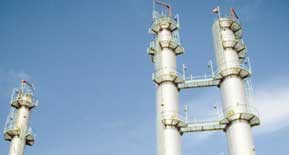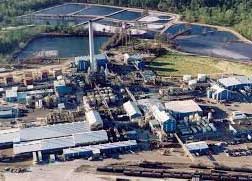Plants: Repsol licenses PO/SM and polyols technology in China; Ingevity to add caprolactone polyol production in Louisiana

Spanish firm Repsol says it has entered into a new technology licensing agreement to build a propylene oxide and styrene monomer co-production plant, as well as two plants for flexible and polymer polyols.
Repsol will license its PO/SM and polyols technology to construct three plants in the Jiangsu Province in China. The agreement includes a plant of 200,000 tonnes/year of propylene oxide (PO) and 450,000 tonnes/year of styrene monomer (SM) and two plants with an aggregated production capacity of 125,000 tonnes/year of both flexible (PPG) and polymer (POP) polyether polyols.
Additionally, Repsol plans to continue collaborating with this licensee in additional initiatives to strengthen Repsol’s positioning in the Chinese market.
Repsol has leading technology in the production of propylene oxide, styrene, and polyols. This agreement adds up to three previous technology licensing agreements in China since 2013.
Repsol built its first propylene oxide/styrene monomer (PO/SM) plant and its first polyol plant in Puertollano, Spain, in the early 1970s. This PO/SM co-production plant was the first built in the world. Later on, in the early 2000s, Repsol built a second PO/SM plant, which doubled the original facility’s capacity, and an additional polyols plant, both in Tarragona. Repsol’s capacity for innovation is built on the expertise and experience garnered at the Repsol Technology Lab, an example of one of the most cutting-edge private R&D models in Spain and one of the largest in Europe. This expertise adds up to the continuous technological improvement and development carried out at Repsol’s Industrial Complexes. All the previous has enabled Repsol’s PO/SM co-production process to become an international benchmark, reinforced by this new agreement.
Propylene oxide and styrene monomer are raw materials for products like polyols, glycols, polystyrene, expanded polystyrene (EPS), acrylonitrile butadiene styrene (ABS), and synthetic rubber. These products are used in everyday objects that improve quality of life, such as cosmetics and personal care products, housing comfort elements such as insulation and roofing materials that contribute to sustainability through energy efficiency, or car parts that enhance safety.
Similarly, polyether polyols have several applications in many aspects of our daily life, like flexible foams for various comfort applications, mainly mattresses and sofas, car seats, headrests, and sound-absorbing parts, among others, for the motor industry, additionally, as solid polyurethane elastomers, filled polyurethane elastomers and sealants, and polyurethane surface coatings and varnishes.

In other news, US firm Ingevity Corporation will add caprolactone polyol production capabilities at its facility in DeRidder, Louisiana. Global demand for its Capa suite of caprolactone technologies primarily for industrial equipment, adhesives, coatings, and automotive applications is increasing. The DeRidder upgrades will increase Ingevity’s global polyol production capacity by 40%, positioning the company to better meet demand and more effectively serve its customers.
Ingevity’s caprolactone technologies are made possible through a unique ring-opening polymerisation process, whereby polycaprolactone monomer can be derivatised into proprietary, value-added polyols and thermoplastics. The investment in Ingevity’s DeRidder plant will include installation of monomer storage capacity to not only support the manufacturing of polyol derivatives, but also to streamline and enable bulk monomer shipments to US customers. Ingevity expects construction in DeRidder to begin in the summer of 2021 and the new capacity to be operational by the first quarter of 2022.
“Our Engineered Polymers business continues to experience increasing demand for our Capa portfolio in a variety of demanding, high-performance end-use applications,” said Mike Smith, executive vice president and president, Performance Chemicals, at Ingevity. “We continue to invest in the Capa platform in terms of innovation, production and customer partnerships."
Ingevity’s Warrington, UK-based Capa innovation centre is expected to be operational by the winter of 2021 and will house equipment and testing capabilities dedicated to accelerating application development for the Capa brand.
“The plant upgrades in DeRidder better position Ingevity to not only meet increased global demand for our Capa technologies, but will improve the supply chain, decrease lead times and enhance overall service for customers across the globe,” said Steve Hulme, Ingevity’s vice president, Engineered Polymers.
Ingevity’s DeRidder plant has been in operation since 1977, employs 187 people and includes production of emulsifiers, rosin and tall oil fatty acid used in a variety of applications such as adhesives, asphalt additives, publication inks, metalworking fluids, drilling fluid additives, oilfield production chemicals, paints and coatings. Ingevity also operates a polycaprolactone production facility in Warrington, UK.
Headquartered in North Charleston, South Carolina, Ingevity operates from 25 locations around the world and employs approximately 1,750 people.
(PRA)
Subscribe to Get the Latest Updates from PRA Please click here
©2021 Plastics and Rubber Asia. All rights reserved.

©2020 Plastics and Rubber Asia. All rights reserved.
Home Terms & Conditions Privacy Policy Webmail Site Map About Us














